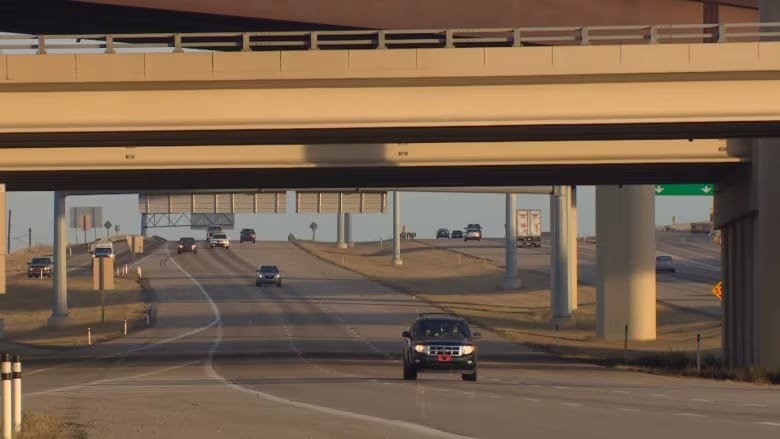Auditor general says Alberta government failing to track if highway maintenance is done right
Contracting association says members willing to provide more records if the province wants

A new report from Alberta’s auditor general reveals concerns about how the provincial government and its highway maintenance contractors are tracking roadwork, despite spending hundreds of millions of dollars annually. The report, covering the years 2021 to 2023, highlights issues such as the lack of documentation on inspections of repaired or cleared roads and the absence of photographic evidence to show road conditions.
Brad Ireland, assistant auditor general, stated that the Department of Transportation and Economic Corridors was not properly documenting which highways had been inspected or when, and contractors were failing to submit evidence of their work. Additionally, the report found that the department has been awarding sole-source contracts for extra work—such as culvert repairs and surface patching—without putting these contracts out for competitive bidding.
The audit emphasizes the need for the government to ensure contractors are fulfilling their obligations, with the report noting that the department needs better systems to verify the work contractors are paid to do. “The department spends a lot of money to maintain its highways,” the report concludes, “It needs effective systems to ensure contractors do the work they are getting paid for and any extra work it gives the contractors follows its procurement policies.”
Alberta’s highway maintenance covers approximately 64,000 kilometers of road, and the province allocates about $320 million annually to seven contractors responsible for various maintenance tasks. These tasks include mowing grass, cleaning bridges, maintaining signs, clearing snow, and more. A large portion of this budget—more than a third—is dedicated to winter maintenance.
For most contracts, ministry staff are responsible for inspecting the work before paying contractors, though some contracts place the onus on the contractors to verify and report their work. The government can also withhold payment if certain standards for road conditions, such as road paint or salt quality, are not met.
The auditor general’s report uncovered instances where contractors failed to properly document snow accumulation during two snowstorms, and in one case, the government failed to flag this missing information. In another instance, the government relied on a contractor to monitor road conditions for more than four years, despite the contract stipulating that it was the government’s responsibility to conduct these inspections. The audit also revealed that in 20 out of 23 instances where the government was responsible for inspecting work before payment, staff confirmed they visually checked the work but failed to document it. Additionally, six out of eight work orders related to salt and ice control materials showed no evidence that the government tested whether the materials met required standards.
Regarding sole-source contracts, the report found that in the three years examined, the ministry spent approximately $54 million annually on extra, unplanned work. According to provincial policy, contracts worth over $100,000 are supposed to go to tender, unless there’s an emergency or no other qualified contractors are available. The audit found that four of ten such work orders lacked records explaining why the government had bypassed the tender process. Furthermore, in several instances, department staff only obtained one price for the work instead of the required three quotes.
Ireland clarified that there were no emergencies surrounding the awarded contracts and that many of the smaller projects had escalated in cost, leading to the need for additional work. He recommended that the department improve its processes for ordering extra work and enhance its monitoring procedures to ensure contractors meet all requirements.
In response to the audit, Transportation and Economic Corridors Minister Devin Dreeshen accepted the recommendations. "While improvements may be required for documentation related to monitoring the performance of its highway maintenance contracts, the department continues to ensure the contractors meet service levels to keep the highway network safe," Dreeshen said.
Ron Glen, CEO of the Alberta Road Builders and Heavy Construction Association, noted that all seven contractors maintaining provincial highways are members of the association. He emphasized that the report raised concerns about the documentation of inspections, not the quality of the work itself. Glen suggested that if the government requires more detailed records, contractors are willing to provide them. However, he also questioned whether the additional administrative burden was worthwhile, especially during winter storms when getting equipment onto the roads quickly is the priority.
While the association supports the idea of opening contracts to tender, Glen pointed out that calling for bids on smaller repair projects can slow down the process, potentially missing the construction season and delaying urgent work. He suggested that the government reconsider its policy of requiring tenders for these types of jobs.





